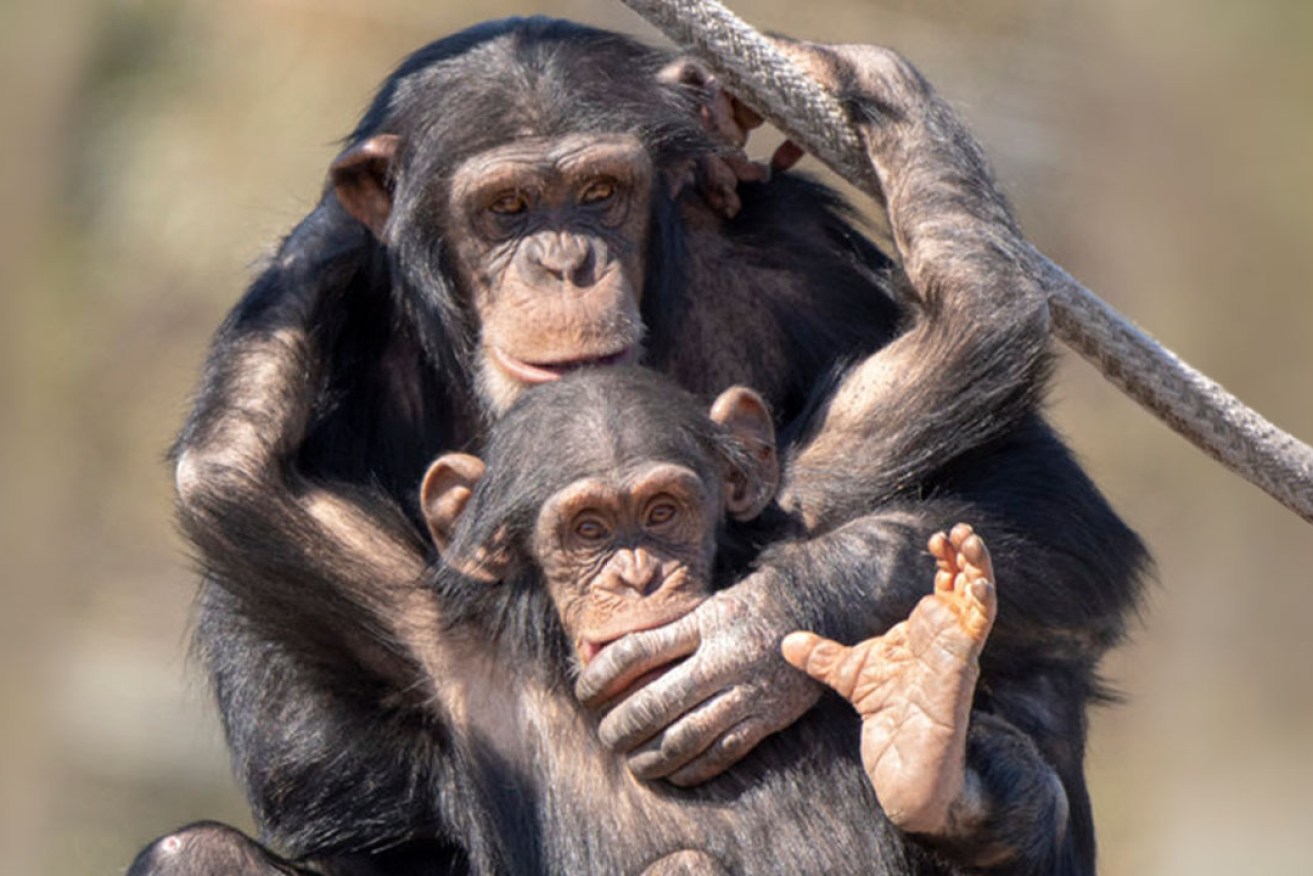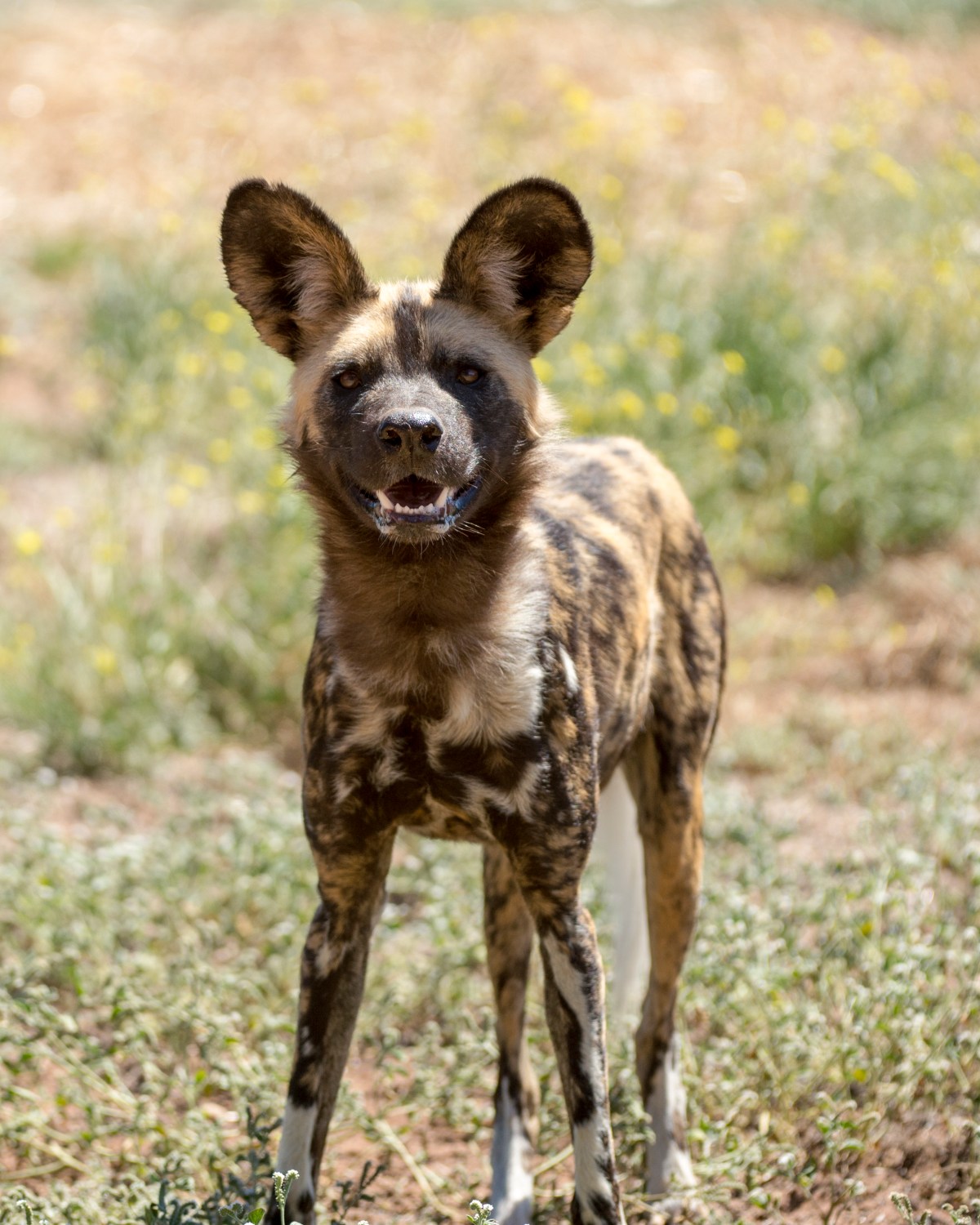If we could talk to the animals
A year after Zoos SA venues and staff went into pandemic lockdown, Elaine Bensted reflects upon adaptation, lessons learned and the chance for humans to reconsider an often-destructive relationship with nature.

Photo: Adrian Mann/Zoos SA
The new normal.
We’ve heard those words almost constantly since the start of the global pandemic we still find ourselves in over 12 months later.
Today marks one year since both of our sites, Adelaide Zoo and Monarto Safari Park, closed their (now reopened) doors to the public. Through intense highs and lows, the last year has created challenges and the need for new ways of thinking to navigate them and find solutions.
Not surprisingly – as the CEO of Zoos SA, a not-for-profit conservation charity – some of my most cherished learnings from the year can be taken from the animal world. Animals are the masters of transformation, perfectly adapting to change and new experiences, often in front of our eyes.
So while the last 12 months will be a year that many would like to forget, there are elements and lessons that shouldn’t be forgotten.
Co-existing with nature is a delicate balancing act
We all remember the savage bushfires that brought in 2020, and unfortunately nature’s warning signs haven’t slowed down since. The coronavirus pandemic has highlighted that our current relationship with nature and animals is unsustainable. Destruction of habitat and pollution of our planet’s wild spaces as well as the excessive consumption of many animal species, including several who are critically endangered, brings animals closer into the human environment, along with a host of zoonotic diseases that we are vastly unprepared for.
At the height of South Australia’s lockdown, the International Union for the Conservation of Nature (IUCN) updated its Red List of Threatened Species – and the news wasn’t good.
The IUCN Red List is a comprehensive list of animal, plant and fungi species and their respective conservation statuses detailing how well they’re surviving in the wild. Ranging from Data Deficient (meaning we don’t have enough information about the species to draw a conclusion) and Least Concern all the way to Critically Endangered and Extinct, these statuses make up a crucially important indicator of the health of the planet’s overall biodiversity and are a powerful tool in understanding and protecting our natural world.
This year’s results? While the rapid spread of COVID-19 brought humans to a standstill, extinction continued to barrel on ahead, indiscriminately taking precious species with it. The updated list now covers over 120,000 species worldwide and, of them, 32,441 are threatened with extinction – that’s one in four of all assessed species across our planet. At Zoos South Australia, this a truth we know all too well – 61 species that call Adelaide Zoo and Monarto Safari Park home are threatened with extinction.
Despite the obvious need to change, it seems we’re still not listening to the signs.
After a brief COVID- induced hiatus, humans are now back to slashing, ploughing and burning through our finite natural resources. Perhaps if we looked to our animal cousins on this one – living within our means, using only the food, water and resources we need and, like the Brazilian Tapirs and Indian Elephants who revegetate the forests they roam through by spreading important seeds through their droppings, replenishing what we consume – we could move closer towards the meaningful change needed to lessen the impact of the current conservation crisis.
We are all more adaptable than we realise
Zoos SA closed. Then opened. Then closed again. We continuously adapted to visitor number changes and reassessed the types of activities and events we could hold. Office-based staff worked from home, zoo keepers and vet teams were split into small groups so as to not spread the virus if one of them contracted it. Suddenly, our purpose of connecting people with nature was transitioned solely to screens and we missed out on three months of vital revenue needed to continue our conservation work.
If you had told me in early 2020 that a global pandemic would see Adelaide Zoo and Monarto Safari Park closed indefinitely for the first time in their combined 174-year history, I wouldn’t have entertained it for a second. But, like our non-human counterparts, we assessed the situation and adapted our behaviours to suit new circumstances. Where animals would grow thicker fur as altered weather systems created more frosts and storms, change colour to camouflage into their changing environment (Arctic Foxes, I’m looking at you) or adapt their entire diet to combat the disappearance of regular food sources, we wore masks, social-distanced and reimagined how, when and where we worked and how we could generate revenue differently.
Personally, I had to wholly embrace technology. I learnt that it’s possible to hold staff briefings, conduct workshops, have Board meetings and AGMs using cameras and screens. I learnt that new policies and procedures can be developed within hours and that there are new and diverse ways of driving revenue when your bread and butter disappears overnight. It seems, through one of the worst global public health emergencies in history, we’re finally catching on to what animals have done all along.
The importance of leadership
Zoos South Australia would be nothing without the passionate people who work every day to make a difference. The same goes for our incredible supporters who, whether it was their unwavering words of kindness and encouragement or their generous donations that helped see us through the closure, showed up for us when I’m certain they were facing challenges of their own.
And that kind of support deserves strong and compassionate leadership. Both myself and the senior leadership team tried our hardest to inform staff at every turn, ensuring complete transparency. As a leader, and even more so during times of peak uncertainty, you have to remember you’re dealing with real people with real worries and fears – keeping them out of the loop is only going to make things worse.
Surveys were sent around to capture feelings and thoughts around Zoos SA’s leadership during South Australia’s lockdown, and the results only strengthened our belief in open and honest communication. Over 80% of respondents preferred updates at least once a wee,k while 90% were confident in the team’s ability to lead them through the crisis, with frequent and open communication being cited as a key reason for this.
It’s not just humans that benefit from leadership delivered with compassion. One of my favourite species at Monarto Safari Park is the African Painted Dog. Unlike other animals whose group structure benefits only those at the top, these dogs are known to share food with and care for weak or injured individuals within the pack.

Photo: Adrian Mann, Zoos SA
Chimpanzees – our closest living relatives – have been seen to rally around troop members when they are in distress and even comfort each other when shown sad movies. Just like these animals, we crave the stability and warmth that comes with knowing where we fit and that we’re safe within a group. And how do you do that? Empathetic communication.
So, these are some of the things I’ll be taking into the ‘new normal’ ahead.
I hope that amongst the chaos and uncertainty, you’ve learnt some valuable lessons too. And if you haven’t, all you need to do is look to our animal cousins for advice.
Elaine Bensted is the Chief Executive of Zoos SA, a conservation zoo-based charity running Adelaide Zoo and Monarto Safari Park




